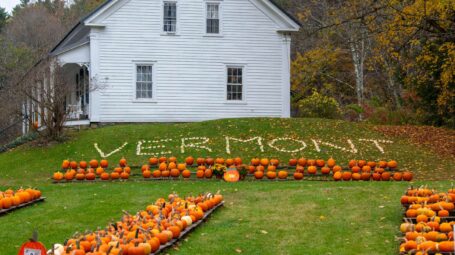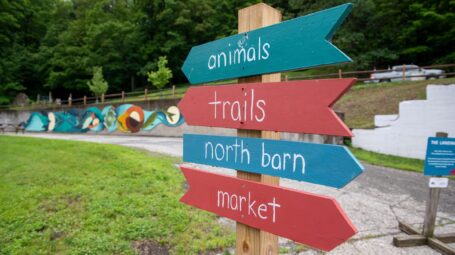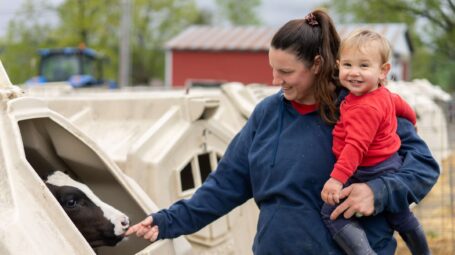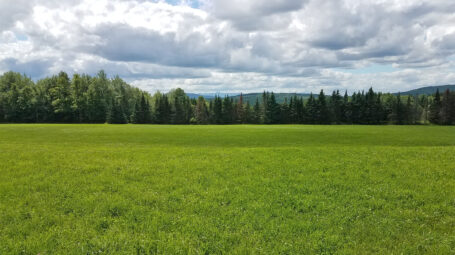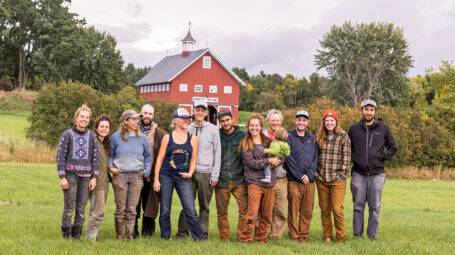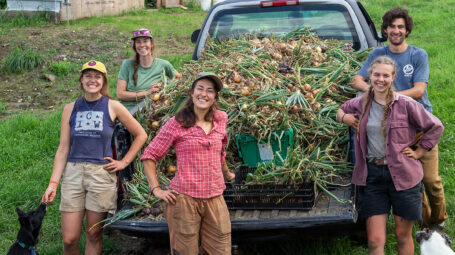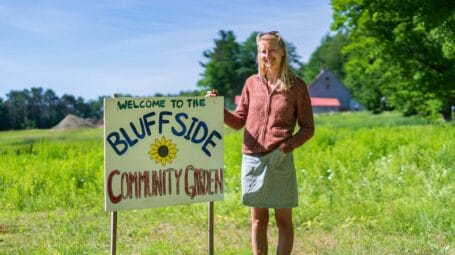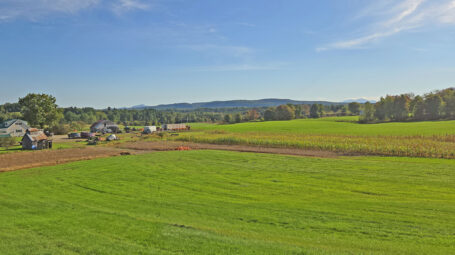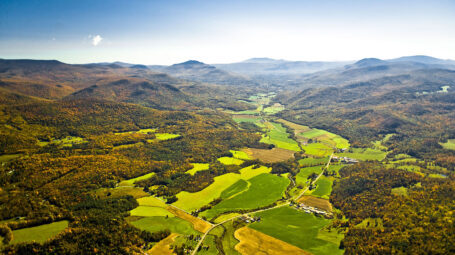Nearly 200 acres of farmland and forest conserved
Adrian and Marie Rainville are lifelong farmers whose passion is watching wildlife thrive on their land. In late 2023, they conserved just over 196 acres of forest, farmland, and wetland in Franklin, Vermont with us.
“We weren’t the first owners, and we won’t be the last,” said Adrian. “We wanted to see the land used in an ethical, responsible manner. We wanted it to represent the best of Vermont, where conservation and agriculture go hand-in-hand.”
The Rainvilles bought the property in 1985 and ran a dairy farm until December 2020. After they sold their herd, they leased out their farm fields while considering options for the future of the farm. Conserving their land gave them peace of mind. They know their work to foster wildlife on the land will continue for years to come.
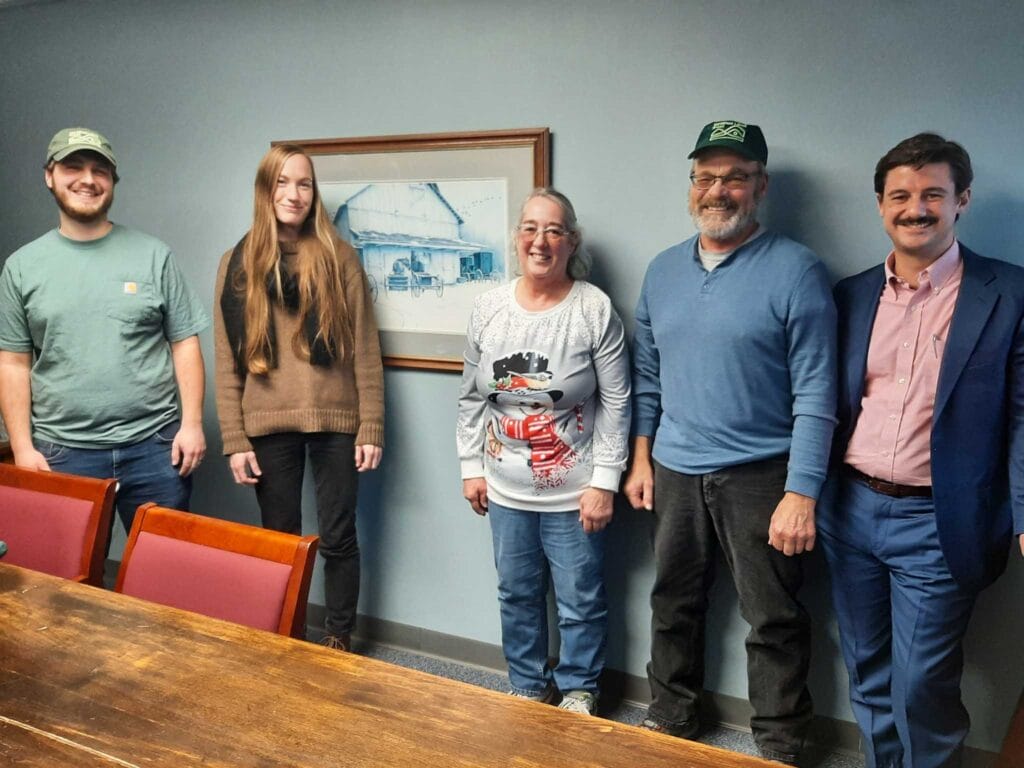
From left: VLT staff Tucker Malone and Morgan Klimmek, and Marie and Adrian Rainville and their attorney, Marc Webb, at the closing.
An impaired river brought back to life
Nearly a mile of the Rock River runs through the Franklin property. The river flows into Rock River Bay, in the northern part of Lake Champlain.
After several years of owning and farming the land, the Franklin farmers noticed that evidence of wildlife around the river was declining. In 2000, they decided to stop pasturing livestock within 50 feet on either side of the river and limit human intervention in that area. With support from state and federal conservation programs, they went further and planted native shrubs and trees there to create a buffer.
Their experiment worked. Wildlife started returning to the stream and the area around it. Marie started counting the number of bird species she saw. By 2024, she’d counted 75 different species. They’ve seen deer, otter, mink, and beaver frequent the stream. In addition to serving as a wildlife corridor, the mature buffer with shrubs and trees has also reduced erosion in the area and is keeping water clean.
Under the conservation easement, the wildlife corridor is part of a 30-acre Wetland Protection Zone with additional conservation protections to reduce soil erosion and to promote clean water, and wildlife habitat. This will allow the river and wetland to meander naturally and to slow and filter waters during storms.
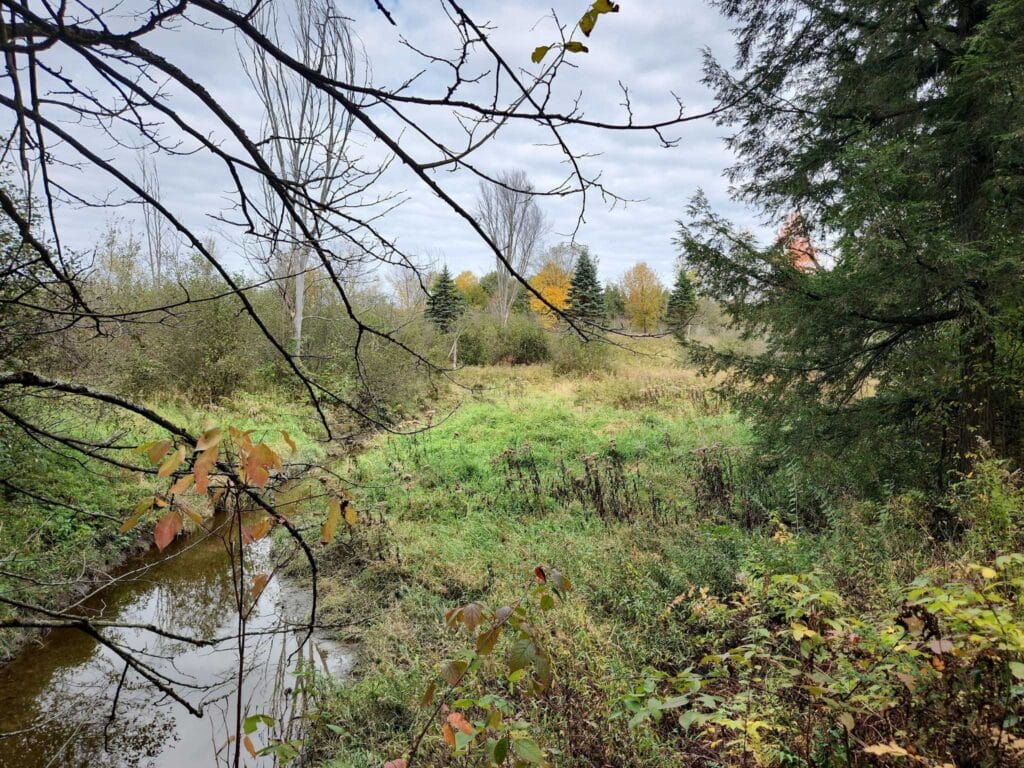
A river, a wetland, and a farm conserved for the future
The Rainvilles want future owners to continue farming the land. With 82% of the property designated as prime or state-significant agricultural soils, they know it can be a productive and vibrant farm. Conservation ensures that the wildlife they’ve fostered will also continue to thrive.
“We couldn’t be happier,” added Adrian. “We’ve seen by now how wildlife has thrived when we’ve stepped back. Baby season in April and May, quiet season in the winter. We want to see that continue when we sell the land.”

